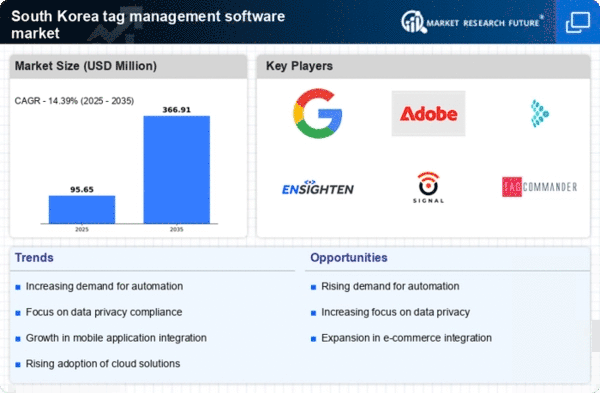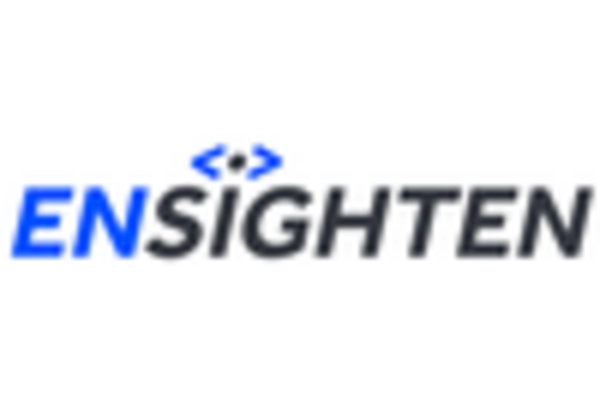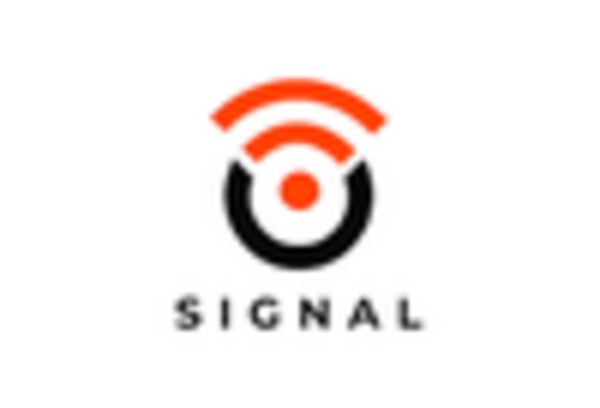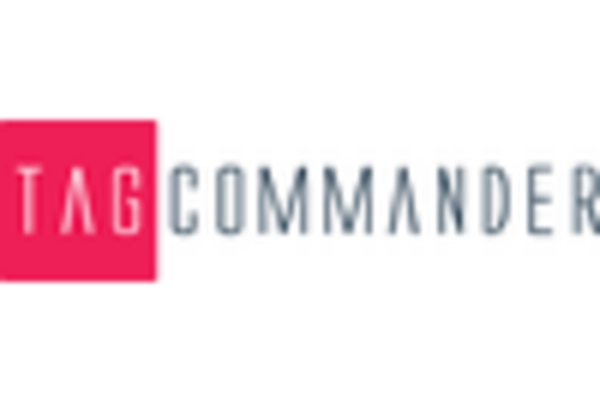Expansion of E-Commerce Platforms
The rapid expansion of e-commerce platforms in South Korea is significantly influencing the tag management-software market. As online retail continues to flourish, businesses are increasingly adopting tag management solutions to streamline their digital marketing efforts. These tools enable companies to manage and analyze various marketing tags efficiently, ensuring that they can track user behavior and optimize their online presence. The e-commerce sector in South Korea is expected to reach a valuation of over $100 billion by 2026, which underscores the growing need for effective tag management solutions to support this booming industry. Consequently, the tag management-software market is likely to benefit from this upward trend.
Increased Focus on Marketing Automation
The tag management-software market is witnessing a significant shift towards marketing automation as businesses strive to enhance their marketing efficiency. Companies are increasingly integrating tag management solutions with marketing automation platforms to streamline their campaigns and improve targeting accuracy. This integration allows for better tracking of customer interactions and more effective data utilization. As of 2025, it is estimated that around 60% of businesses in South Korea are utilizing some form of marketing automation, which is likely to drive the demand for tag management software. This trend indicates a growing recognition of the importance of automated solutions in optimizing marketing strategies.
Regulatory Compliance and Data Governance
The tag management-software market is also being shaped by the increasing emphasis on regulatory compliance and data governance in South Korea. With the implementation of stricter data protection laws, businesses are compelled to adopt solutions that ensure compliance with these regulations. Tag management software plays a crucial role in helping organizations manage their data collection practices while adhering to legal requirements. As companies navigate the complexities of data governance, the demand for compliant tag management solutions is likely to grow. This trend not only reflects the evolving regulatory landscape but also highlights the importance of responsible data management in the tag management-software market.
Rising Demand for Real-Time Data Management
The tag management-software market in South Korea is experiencing a notable surge in demand for real-time data management solutions. Businesses are increasingly recognizing the necessity of immediate access to data for decision-making processes. This trend is driven by the growing emphasis on data-driven strategies, which require timely insights to enhance customer engagement and optimize marketing efforts. According to recent estimates, the market for tag management software is projected to grow at a CAGR of approximately 15% over the next five years. This growth is indicative of the market's potential to support businesses in harnessing real-time data effectively, thereby improving operational efficiency and responsiveness.
Growing Importance of User Experience Optimization
In the competitive landscape of South Korea's digital market, the optimization of user experience has become paramount. The tag management-software market is responding to this need by providing tools that facilitate the seamless integration of various marketing tags, thereby enhancing website performance and user engagement. Businesses are increasingly aware that a positive user experience can lead to higher conversion rates and customer loyalty. As a result, the demand for tag management solutions that support user experience optimization is likely to rise. This trend is expected to contribute to the overall growth of the tag management-software market, as companies prioritize user-centric strategies.
















